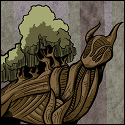|
In this thread, we choose one work of Resources: Project Gutenberg - http://www.gutenberg.org - A database of over 17000 books available online. If you can suggest books from here, that'd be the best. SparkNotes - http://www.sparknotes.com/ - A very helpful Cliffnotes-esque site, but much better, in my opinion. If you happen to come in late and need to catch-up, you can get great character/chapter/plot summaries here.  For recommendations on future material, suggestions on how to improve the club, or just a general rant, feel free to PM the moderation team. For recommendations on future material, suggestions on how to improve the club, or just a general rant, feel free to PM the moderation team.  Past Books of the Month [for BOTM before 2019, refer to archives] 2019: January: Roadside Picnic by Arkady and Boris Strugatsky February: BEAR by Marian Engel March: V. by Thomas Pynchon April: The Doorbell Rang by Rex Stout May: Thinking, Fast and Slow by Daniel Kahneman June: 1491: New Revelations of the Americas Before Columbus by Charles C. Mann July: The Art of Fielding by Chad Harbach August: Memoirs of Extraordinary Popular Delusions and the Madness of Crowds by Charles Mackay September: Picnic at Hanging Rock by Joan Lindsay October: Her Body and Other Parties by Carmen Maria Machado November: The Maltese Falcon by Dashiell Hammett December: Moby Dick by Herman Melville 2020: January: The Jungle by Upton Sinclair February: WE by Yevgeny Zamyatin March: The Autobiography of Benvenuto Cellini by Benvenuto Cellini April: The Decameron by Giovanni Boccaccio May: Black Lamb and Grey Falcon by Dame Rebecca West June: The African Queen by C. S. Forester July: The End of Policing by Alex S. Vitale August: The Merry Adventures of Robin Hood, of Great Renown in Nottinghamshire, by Howard Pyle September: Strange Hotel, by Eimear McBride October:Kwaidan: Stories and Studies of Strange Things (怪談)("Ghost Stories"), by Lafcadio Hearn November: A Libertarian Walks Into a Bear: The Utopian Plot to Liberate an American Town (And Some Bears) , by Matthew Hongoltz Hetling December: Ignition!: An Informal History of Liquid Rocket Propellants by John Drury Clark 2021: January: The Mark of Zorro by Johnston McCulley February: How to Read Donald Duck by Ariel Dorfman and Armand Mattelart March: Carrier Wave by Robert Brockway April: The Third Policeman by Flann O'Brian May: You Can't Win by Jack Black June:Treasure Island by Robert Louis Stevenson July:Can Such Things Be by Ambrose Bierce August: Swann's Way by Marcel Proust September:A Dreamer's Tales by Edward John Moreton Drax Plunkett, 18th Baron of Dunsany October:We Have Always Lived in the Castle by Shirley Jackson November:Strong Poison by Dorothy Sayers December:Hogfather by Terry Pratchett 2022: January: The Sun Also Rises by Earnest Hemingway February: Les Contes Drolatiques by Honore de Balzac March: Depeche Mode by Serhiy Zhadan Current:  Kalpa Imperial by Angélica Gorodischer (Trans. Le Guin) Book available here: https://www.amazon.com/dp/B005LIYZ9S/ref=dp-kindle-redirect?_encoding=UTF8&btkr=1 https://www.indiebound.org/book/9781931520058 [edit] didn't realize z-library was piracy[edit] quote:Prix Imaginales winner quote:“The history of an imaginary empire in a series of tales that adopt the voice of a marketplace storyteller. . . . While the point of each tale eludes paraphrase, the cumulative burden is the imperfectibility of human society . . . Le Guin’s translation, which ranges from blunt to elegant to oracular, seems like the ideal medium for this grim if inescapable message.” About the author quote:Gorodischer was born in Buenos Aires on 28 July 1928.[3] She lived in Rosario from the age of eight, and this city appeared very frequently in her work. In 2007 the city council of Rosario awarded her the title of Illustrious Citizen.[4] Pacing  Read as thou wilt is the whole of the law. Please post after you read! Please bookmark the thread to encourage discussion. References and Further Materials https://www.tor.com/2014/06/04/entanglement-angelica-gorodischers-kalpa-imperial/ https://smallbeerpress.com/tag/angelica-gorodischer/ Suggestions for Future Months These threads aren't just for discussing the current BOTM; If you have a suggestion for next month's book, please feel free to post it in the thread below also. Generally what we're looking for in a BotM are works that have 1) accessibility -- either easy to read or easy to download a free copy of, ideally both 2) novelty -- something a significant fraction of the forum hasn't already read 3) discussability -- intellectual merit, controversiality, insight -- a book people will be able to talk about. Final Note: Thanks, and we hope everyone enjoys the book! Hieronymous Alloy fucked around with this message at 01:12 on Apr 4, 2022 |
|
|
|
|

|
| # ? Apr 26, 2024 02:30 |
|
I loved this book and was happy to see it picked for BOTM, so I started a reread. I'm only through the first story, but I enjoy the prose.
|
|
|
|
Prose is good so far, wonder how much of that is down to Le Guin. Translators have a lot of power. But when Bib came back from the shadows of the ruins I was hooked.
|
|
|
|
apophenium posted:Prose is good so far, wonder how much of that is down to Le Guin. Translators have a lot of power. I loved when he found the throne too. Kalpa Imperial, Portrait of the Emperor posted:In that big house, in a room shut off by its fallen ceiling, one day toward the end of summer Bib came upon a gigantic chair, heavy as a mountain. It shone like the dishes he'd brought to his mother on his first day of manhood, and was covered with hard beads like those on the necklace that she'd worn since then instead of the string of teeth from animals Voro had killed in a long-ago winter before he was born. The chair was so high, so imposing, so solid, so tremendous, that it scarcely seemed made for a man. Bib thought it might be for a giant. He also thought that he was a giant. Certainly not in body: Bib was still a weak little man, not very tall. Yet he thought himself a giant, and the chair was made for him. He climbed the three steps of its base and seated himself on it. Alone, in the ruined place, in almost total darkness since light entered only through the hold the son of Voro had made in the ceiling that had fallen across the old doorway, there he sat, a bold, inquisitive, disobedient barbarian, on the Golden Throne of the Lords of the Empire. I took a look at a Spanish edition to see if it was close: quote:En esa gran casa, en una habitación clausurada por un techo desmoronado, Bib encontró un día de fines de verano un asiento gigantesco, pesado como una montaña, brillante como los platos que le había llevado a su madre en su primer día de hombre, incrustado de cuentas duras como las del collar que ella usaba desde entonces alrededor del cuello en lugar de la sarta de dientes de animales cazados por Voro en un invierno lejano cuando él aún no había nacido. Era tan grande ese asiento, tan imponente, tan macizo, tan desmesurado, que apenas parecía hecho para un hombre. Bib pensó que sería para un gigante. También pensó que él era un gigante. No era cierto, por supuesto, no por lo menos en cuanto al cuerpo: Bib seguía siendo un hombrecito flaco y no muy alto. Pero pensó eso, pensó que él era un gigante y que el asiento estaba hecho para él. Y subió los tres escalones de la base y se sentó. Solo, en el recinto en ruinas, en la oscuridad casi completa porque no había más luz que la que entraba por el boquete que el hijo de Voro había hecho en el techo caído contra la antigua entrada de la sala, allí, un bárbaro temerario, curioso y desobediente, se sentó en el trono de oro de los señores del Imperio. My Spanish is not very good these days, but it seems like LeGuin stuck pretty close in this example. There were some changes in rhythm, breaking up sentences at least once to make it flow better in English. If someone with better Spanish knowledge corrects me, so much the better.
|
|
|
|
This book is great already imo.
|
|
|
|
I picked this up from the library today and have gotten through the first two chapters/stories so far; it pulled me in right away. I'm looking forward to finishing it; that shouldn't be too difficult given how short the book is.
|
|
|
|
Yeah, it's been really enjoyable so far. Nice to see something fresh in fantasy.
|
|
|
|
|
I'm finished with the first book, and I don't know if it's just me, but it seems like there's an increasing amount of humor in each story. The final one about the haphazardly sprawling capital had me chuckling the whole way through.
Meaty Ore fucked around with this message at 17:45 on Apr 7, 2022 |
|
|
|
I liked these stories. Solid prose as you’d expect from LeGuin and I like the floating timeless feeling with it often seeming like some typical fantasy empire but then occasionally throwing in a reference to cars or guns or Rintintin or something else more modern or linked to the real world.
|
|
|
|
Just finished the rest of the book. Overall, I think I preferred the stories from the first part, but then I reached the last story, and the caravan guide's tales about the origin of the world had me howling.
|
|
|
Meaty Ore posted:Just finished the rest of the book. Overall, I think I preferred the stories from the first part, but then I reached the last story, and the caravan guide's tales about the origin of the world had me howling.
|
|
|
|
|
team overhead smash posted:I liked these stories. Solid prose as you’d expect from LeGuin and I like the floating timeless feeling with it often seeming like some typical fantasy empire but then occasionally throwing in a reference to cars or guns or Rintintin or something else more modern or linked to the real world. The last one was amazing with how it altered spellings of early 20th century celebrities to fit this culture's pronounciation.
|
|
|
|
Just finished, what a unique set of stories.
|
|
|
|
|
Regarding the last story, I can't help but wonder if Gorodischer was aware of Gene Wolfe having done much the same thing with mashing Greek myth and (in his case) American history together from a far future point of view in the Book of the New Sun. It seems unlikely, though, both books seem to have come out at at similar time?
|
|
|
|
|
my reaction to the first 2/3rds of the book was "i were a citizen of the empire (to the extent that such a thing is possible) i would feel pretty worried that i was going to wake up and end up as part of a Myth" but then the incense road chapter took away my ability to be snarky on even that point, very upsetting
|
|
|
|
This is the Dark Souls of novels in this video essay I will... *is pulled away by comically large cane*
|
|
|
|
https://twitter.com/alloy_dr/status/1518750996813565952?s=20&t=B16pvjlvCXSSxvSE353Jbw
|
|
|
|
|
I just finished Kalpa Imperial and wow I loved it. Loved it! The final chapter in particular was extremely good, a lossy soup of classical legend eroded by infinite tellings over uncountable time.
|
|
|
|
Reread of Kalpa Imperial was great; looking forward to seeing what the next BOTM is.
|
|
|
|
Not bad. I liked the Ferret, the arts town, the going coming guy, and the last story the best. The one about the dancing kid was super Vancian, like distilled and concentrated Jack Vance, very well done.
|
|
|
|
gorodischer read a lot of calvino as well, i think.
|
|
|
|
https://twitter.com/alloy_dr/status/1521035786463940608?s=20&t=enjWRhIqlNhYrfPvN847zg
|
|
|
|
|
Finally finished this, it was quite good but parts of it drag on and on.
|
|
|
|
Finished this. Wow what book. I loved the fluid nature of the narrators. Sometimes the storyteller is a dick, a villain, a legend, or even listening to another story. Would recommend.
|
|
|
|
Only 33% of the way through this but it is so loving amazing. I went and read Piranesi in between and came back to this and felt another shock with just how much I enjoy this book. It's just pure and wonderful storytelling.
|
|
|
|

|
| # ? Apr 26, 2024 02:30 |
|
Just finished this, what an amazing little collection of tales. I will say I was mightily confused by the references in the last story, though I will says Yeimsbón marrying Margareta’Acher made me giggle, as well as Yonlenón being the only good ringostar. But is that last story just basically the oral-tradition spinning out of control? They’re so far down the line our culture has come and gone and now taken on borderline mythical proportions?
|
|
|
|





























